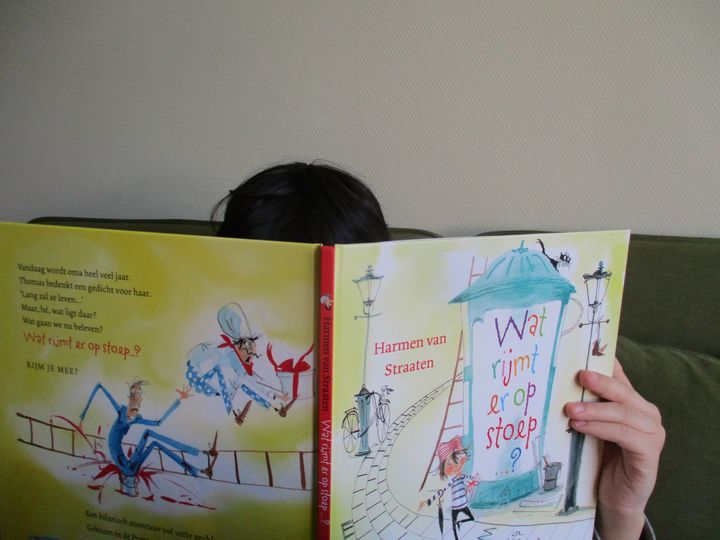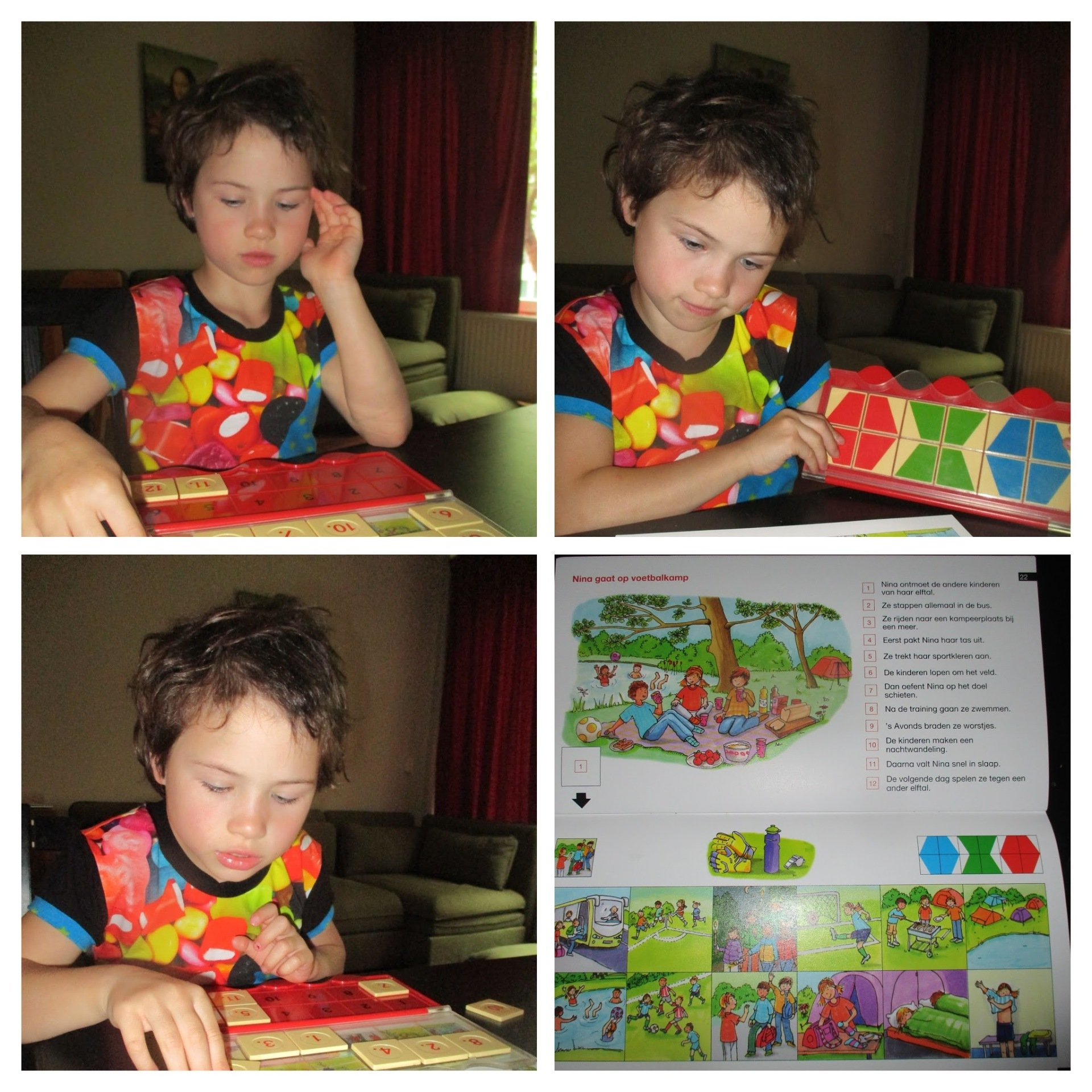Mijn lessen zijn voor kinderen van wie de ouders nog niet zo goed Nederlands spreken: kinderen die op Nederlandse scholen zitten. De meeste kinderen aan wie ik les geef zitten op Kindercampus Zuidas.
We lezen samen boeken. We praten samen. We oefenen voor alles wat de kinderen op school moeten leren.
Most of the lessons I teach are lessons to children whose parents do not speak Dutch or not very well, who attend Dutch schools. My lessons are inspired by what I as a native speaker do to give my own children extra support. But the focus is just a bit extra on vocabulary.
That means: reading a lot together and playing educational games.
Tutoring to group 1 / 2
The precise content of the lessons in group 1/ 2 is dependent on the individual child. The basis is reading and games.
For the reading I might read to them, but mostly in an interactive way: see for example the books of Hervé Tullet, or we repeat books and the second time I ask them to tell me the story. Also we can read ‘samenleesboeken’ (books to read together with 5-yo’s.)
The games I bring are very diverse. I can bring some kind of quiz cards, we can do shapes- and forms games. We do exercises with
mini loco. Also I like story telling games: using books or a game with dice called
rory story cubes.
For children in group 1 and 2 I recommend 40-minute lessons.
In group 2 we might already start with learning to read, if the child is ready and has enough motivation for this.
Tutoring to children at Dutch schools, group 3 and up
My lessons are complementary to what children learn in school.
For example, a typical class for a child in group 4 can consist of:
- Reading: often from a ‘theater reading book’
- Educational games, such as squla quiz cards and all types of card games with which you have to make sentences, form words, etc.
- Spelling exercises, in a playful way. For this I often use ‘maxi loco’ (game like mini loco but with more tiles) But I also give them for example the challenge to write as many words as possible that start with the letter ‘v’ using the lovely book alfabet by Charlotte Dematons.
- Building up vocabulary: most children I teach work with a special vocabulary notebook. Sometimes we read together about a difficult subject and discuss the new words that’re in there. The vocabulary focus is throughout the whole lesson.
Even though we do "fun" things, the lessons are serious. I keep the goals of the schools in mind.
Tutoring to children at Dutch schools, group 6 /7/ 8
For this age group, I also teach children from parents who do speak Dutch at home.
These lessons are comparable with what I do with younger children, but there's extra attention to grammar, spelling and proverbs.
For this age I recommend to buy this dictionary: 'Van Dale Basiswoordenboek Nederlands'.
Dutch language learning for newcomers (children) and children in international schools
These lessons are tailor-made, depending on the language level of the individual child.
With some children I use the method ‘hotel hallo’, this is a method for building up vocabulary. Always I add a lot of games to these lessons.
Poems for Sinterklaas
A free service for my former students. I will come to your house in November to write the Sinterklaas poem together.
not available: Dutch conversation lessons for adults
I've decided to stop teaching adults. My lessons are for children only.
Note on the presence of family-members, and siblings taking lessons together
When one family member is taking classes with me, it is sometimes nice and also useful when a family member joins. I always welcome that. If you let me know in advance that a family member is joining, I take this into account when preparing for the lesson.
It is possible for siblings to have their class with me together on a regular basis. I do have experienced though that mostly it’s best that they have half an hour together + half an hour per sibling on an individual basis.

